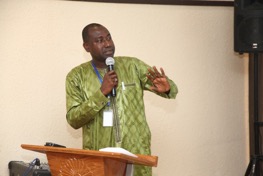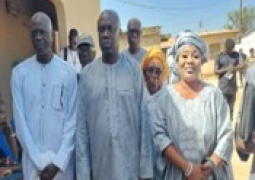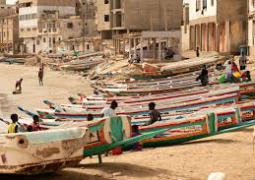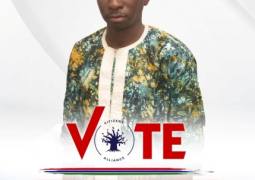
According to Siaka Fadera, the assistant director, Research and Documentation Division at NCAC, the RDD was formerly known as Cultural Archives and was started as an institution by Alhaji Bakari Sidibe in the 70s.
Presenting a paper at the just concluded symposium – Gambian Cultural Heritage Going Digital - organised by the NCAC and its German partners, The University of Hamburg and the Gerda Henkel Foundation, he revealed that records date back to the late 50s.
“They are mainly interviews with griots and the elders – folklore – tales, riddles, proverbs, legends, myths, music, genealogies, Kaabu Empire. And also old and current newspapers collection and so on,” he disclosed.
According to Mr. Fadera, the library service includes heritage management and conservation, traditions, musicology, museology, archaeology, and history while their routine work involves field research and collection, translation and transcription and the RDD challenges and threats include the age of collection, environment, and resources – technical, financial and human.
RDD collection methodology as presented is informants’ interviews of renowned and knowledgeable persons, focus group discussions, griots as traditional custodians, music, and cultural knowledge being passed on from one generation to another, or other identified informants who possess knowledge in the topic under discussion.
“These interviews are mostly recorded on tapes with different formats over this period since started in the late fifties pioneered by Alhaji Bakari Kebba Sidibe, who became the first Head of the unit under the then Oral History and Antiquities Division (OHAD), under the office of the Vice President,” he stated.
In his paper, he explained further that the other research methodologies are the Rapid Rural Appraisal (RRP) and its subsequent successor, the Participatory Rural Appraisal (PRA) which are efficient and useful research methodology tools for tapping information with the active participation of the beneficiaries as stakeholders.
More so, he said at the end of the field trip, recorded tapes were labeled with mainly the name/s of the informant/s, date of the interview, time and place or site of the recording including the topic/subject of the research matter being discussed, with a temporal accession number allocated to each tape/cassette in chronological order from the recording scene.
Being aware of the importance of preserving, promoting, and developing oral sources, which form a considerable part of the RDD collection, a grant was applied for and received from Gerda Henkel Foundation, Germany, entitled NCAC – National Digital Archive of The Gambia, he narrated.
Fadera added that “the NCAC – National Digital Archive of The Gambia considered the copyright licence to researchers according to the provisions of the National Copyright Laws of The Gambia. Therefore, research access shall be granted by the implementation of an online research permit.”
Read Other Articles In Headlines




